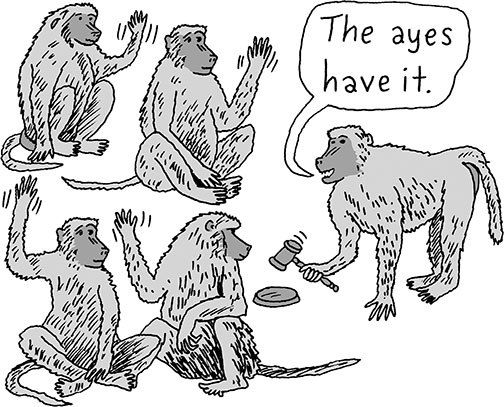In Short
INFANTS may be smarter than we think. They employ sophisticated methods of anticipating experiences once thought to be solely the province of adults, according to a study published in the Proceedings of the National Academy of Sciences in June. Psychology professor Lauren Emberson and her co-authors describe experiments in which infants as young as 5 months were played patterns of sounds followed by images. When the sounds occurred without the images, the areas of babies’ brains controlling visual perception lit up in anticipation of the pattern.
Vaccines are costly to produce and often don’t show an immediate return on investment, sometimes making them a poor bet for pharmaceutical companies. Yet when an outbreak occurs — such as the spread of Ebola in Africa last year — developing and getting vaccines to affected countries is crucial. The solution, says professor of molecular biology Adel Mahmoud, is to create a GLOBAL VACCINE FUND that can begin vaccine development. Writing in the New England Journal of Medicine in July, Mahmoud and his co-authors proposed a $2 billion fund supported by governments, private foundations, and pharmaceutical companies. They argue that it could save thousands of lives.
If you sense that sometimes society is progressing rationally toward its goals and at other times lurching arbitrarily based on knee-jerk instincts, your intuition may not be far off, according to a mathematical model published in Chaos in July. Worked out by a group of researchers from Cornell, Yale, and Princeton, including professor of psychology and neuroscience Jonathan Cohen, the model finds that HUMAN BEHAVIOR yo-yos between periods of slow and fast thinking — with one or the other gaining prominence depending on the amount and distribution of resources.
BABOONS may appear savage, but they work together quite democratically when they are traveling. Rather than an alpha male deciding which direction to take by fiat, any baboon that thinks he sees a better path can temporarily break off from the group, according to Iain Couzin, senior research scholar in ecology and evolutionary biology, who published his findings in Science in June with doctoral student Ariana Strandburg-Peshkin and other researchers. If enough other baboons agree, the troop moves off in the new direction. If the group is split evenly, the baboons chart a middle course or “vote” on which baboon to follow.
Back in 1929, Princeton physicist Hermann Weyl theorized the existence of a MASSLESS PARTICLE that could transport electricity quickly and effortlessly through a circuit. Eighty-five years later, a team led by physics professor Zahid Hasan says it has found the particle. In a study published in Science in July, Hasan and several colleagues described how they discovered the particle, called the Weyl fermion. It may be able to create electrons that could carry a charge twice as fast as ordinary electrons, leading to more efficient electronic devices.
Learning to speak by listening to your parents may seem like a simple skill, but the ability is quite rare in the animal kingdom — only humans and birds could do it, researchers thought. That is, until now. A study led by neuroscientist Asif Ghazanfar and published in Science in August has added one more species to that list — a squirrel-like primate called the common MARMOSET. In experiments, baby marmosets developed their calls faster when parents gave them feedback. Since marmosets are primates, studying them may provide insight into communication disorders in people.













No responses yet